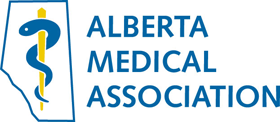An Act to Protect Patients
November 16, 2018

Dear Members:
You may have heard news reports last week that the Government of Alberta had tabled Bill 21, An Act to Protect Patients. The legislation guards patients against exposure to inappropriate or predatory sexual behavior from their care providers. It applies to all regulated health professions, including physicians. The bill passed at the end of last week and is expected to come into effect in April 2019.
The College of Physicians & Surgeons of Alberta and the courts will be responsible for acting upon this legislation with respect to physicians. Bill 21 has a lot to do with regulatory matters, but there are other considerations, too. In the AMA’s review of the bill, we identified some consequential issues for the Minister to consider before the Act comes into effect. I have written to Minister Hoffman to raise them, and also to offer the AMA’s support in addressing them. You can review my letter, below. Following that text, you will also find a link to the response I have now received from the Minister. I appreciate both the timeliness and the content of her reply. It is consistent with maintaining the vital role of the regulatory bodies and ensuring that government involvement occurs only for the most extreme cases to protect the public.
Before concluding, I would like to comment on the issue of penalties applying to providers found guilty of sexual assault. While the first draft of the bill would have allowed a convicted provider to reapply for a license after five years (although with no guarantee that the College would grant one), it was subsequently amended to say that a provider convicted of sexual assault would receive a lifetime ban from practicing in this province.
The lifetime ban will apply to individuals who have been found guilty of criminal offence(s) by the courts – who will also determine the criminal sentence to apply.
For me, the severity of the penalty highlights the sanctity of the doctor-patient relationship and emphasizes the consequences of violating that trusting relationship. This thought makes me grateful for the professional, moral and ethical standards that characterize all but a very few in our profession. To borrow some language from the CanMEDS competency framework, I thank every physician who works every day to “Fulfill and adhere to the professional and ethical codes, standards of practice, and laws governing practice.”
I am proud to be an Alberta physician and to practice among you. As always, I am keen to know what you think. You can (i) reach me by email, (ii) comment to colleagues on our Discussion Board or (iii) make a public comment on our website. The links are here:
- Communicate with me privately and directly by email if you would like a reply: president@albertadoctors.org
- Share your perspectives with colleagues on our member-only Discussion Board (member login required).
- Comment publicly below on this President’s Letter.
Warm regards,
Alison M. Clarke, MD, CCFP, FCFP
President
November 9, 2018
Letter to The Honourable Sarah Hoffman
Dear Minister Hoffman:
I write in response to the passage of Bill 21, An Act to Protect Patients. The Alberta Medical Association supports efforts by government to strengthen protections for the public when dealing with health professionals, including physicians.
Our understanding is that the College of Physicians & Surgeons of Alberta and other health profession colleges were consulted in development of this legislation. That is very appropriate, but the professional associations also have important perspectives to bring. Therefore, it’s critical for the AMA and other associations to be engaged in planning for the April 2019 implementation of the Act, to properly prepare both patients and providers.
For the AMA’s part, there are some issues with implementation that will require careful consideration.
First, the amendments to the Health Professions Act give the Minister limited powers to impose Standards of Practice in matters related to sexual misconduct or assault. This action would occur when the Minister believes that a standard established by the regulatory college fails to adequately safeguard the public. Bill 21 limits the scope of any imposed standard to matters of sexual misconduct. We must, though, still ensure that the boundaries of the Minister’s discretion are well defined because of the potential impact on the concept of self-regulation for the entire profession. The public has been well-served by self-regulation because such professionals accept responsibilities and accountabilities in exchange for the degree of autonomy they enjoy. We would hope that any change to this foundation by the Minister would be made sparingly and with the greatest prudence.
Secondly, Bill 21 allows the Minister to release health information to the regulatory college for purposes of an investigation of sexual misconduct. We understand the intention, but still point out that information sharing must balance with the responsibilities of the Minister (and all custodians) to disclose the least amount of information required for the purpose at hand. Only patient and provider information associated with the event that triggered the investigation should be shared. Any expressed wishes of the patient should also be considered.
Finally, given the scope of potential change contained in Bill 21 – and again with respect for the well-intentioned attempts to manage egregious cases of misconduct – monitoring for unintended consequences should be ensured. The AMA would welcome the opportunity to assist with such monitoring efforts – as well as assist the Ministry with public and professional education activities to properly roll out the impact of these amendments on physicians and other health care providers.
Thank you for your consideration of these matters. I look forward to our next conversation.
Warm regards,
Alison M. Clarke, MD, CCFP, FCFP
President
View the letter response (pdf) from The Honorable Sarah Hoffman

No comments
Commenting on this page is closed.